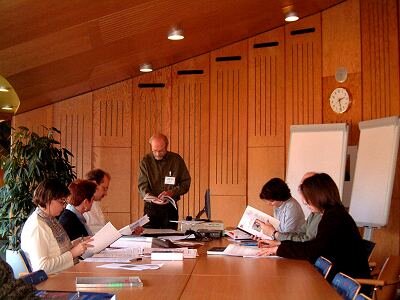Using space to teach in primary school

We, the education team at the European Space Agency (ESA), are working with teachers to jointly design new activities and material to introduce space themes in the classroom.

Children have a natural interest in space. Activities relating to space help to develop qualities such as creativity, curiosity, enthusiasm, flexibility and cooperative work.
To develop new materials and projects for schools, ESA organises workshops such as "Teach Space", where teachers come together to talk about ways of using space for primary school education in Europe. As the teachers know their own needs and constraints, we happily take into account advice received from them.
If there are any comments or recommendations you would like to make on the content, form, etc., please do not hesitate and write to us at ISSeducationteam@esa.int.
'mISSion possible' may appear to be a complete project, but it is much more than that. It is a framework that keeps on changing and growing with the latest space news and feedback from teachers. This is the advantage of the web-based format – it is always up to date.
Some recommendations to take into account:
Use space as a tool to teach across all disciplines: children learn about space and above all they learn about the normal curriculum using the very attractive theme of space
Present interdisciplinary activities: children do not differentiate between subjects; space is an ideal topic for developing activities which combine the various subjects on the syllabus, such as Arts, Sport, History, Geography, Social Studies, Language and Second language, Maths, Science and Technology
Stimulate curiosity and creativity: children participate actively in the activities. Thus they have some control over the learning process and acquire knowledge more easily
Propose project-oriented and hands-on activities: children are stimulated by both the objective to match and their involvement in the project, they feel responsible
- Develop teamwork skills: children form a ´mISSion possible´!
For any further information, please contact us at ISSeducationteam@esa.int.







